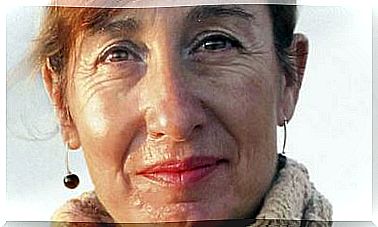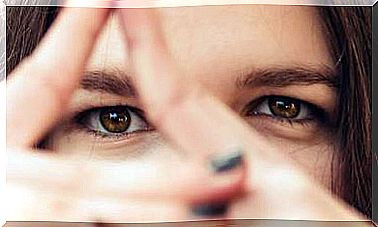“There Are Impulses That Are Closely Related To Our Innermost Being”
From his experience as a patient and readings on neuroscience, Hustvedt writes about the mind and its mechanisms. Many open questions remain.

Siri Hustvedt, Princess of Asturias Award for Literature, is the author, among other works, of Memories of the future , All I loved and Elegy for an American (Anagram). Born 65 years ago in Minnesota, married to fellow writer Paul Auster, she received a doctorate in English literature and, from a very young age, became interested in the English school of psychoanalysis.
We spoke with her in relation to her neuroscientific research and her experience with psychoanalysis, and how they are reflected in The trembling woman or the history of my nerves (Anagrama), which narrates the search for an explanation for some evils that do not seem to have a physical cause.
While speaking in public about her father, who died two years earlier, the writer and essayist began to shake. Her voice was calm but her body shook uncontrollably, as if under electric shocks. There were more attacks, for which there appeared to be no origin.
– Your book is the lucid chronicle of your search for a diagnosis.
– The first time I trembled was in a tribute to my father, who died two years earlier, at the university where he was a professor, in front of his friends and colleagues. I am convinced that the emotion generated by that moment triggered the attacks, but it is not clear that it was the relationship with my father itself that generated them.
– Did they have a very strong bond?
– I adored my father. He was reserved, old-fashioned, but much more involved than other parents of his generation. It was a very close relationship. His death, although predictable because he was old and ill, was more difficult to integrate than he could imagine.
– Phobias can be a response to fear of death. Do you think this happened to you?
– The funny thing about my case is that the general consensus –and I have spoken with many psychiatrists and neurologists– is that my tremors were neither of panic nor of phobia. In a panic attack you feel like you are dying, you get scared … I was never scared.
– This work reflects his extensive knowledge of the mind…
– I have been documenting myself for this book for 35 years. I wrote it in a few months because all the data was in my head. Honestly, I don’t think anyone can suffer from my symptoms and write such a book in such a short time. I have read about these topics for years and when I suffered the attacks I was already involved in neuroscience, in work groups, I went to conferences, gave literary workshops in psychiatric …
– What is most surprising about the human mind?
– I have always been fascinated to understand how unconscious ideas act in us. I know it is something very Freudian, and related to 19th century medicine, but we still do not know how these thoughts act on a physiological level.
– After his attack, he started looking for answers. Why your first route was the biological explanation?
– At first I thought I was suffering from a “conversion” disorder (formerly known as hysteria). There was something in my father’s death, in my story, that was turning into an attack… But that theory was discredited. So I went to a psychiatrist who gave me a medication that didn’t work, and then I went to a psychoanalyst, who I keep seeing.
I am fascinated to understand how unconscious thoughts act on us, but we still do not know how they affect us on a physiological level.
– It is curious that he had not turned to a psychoanalyst before.
– I think it is because I was scared what I might find and because I never felt that I was bad enough … And it is interesting because, although I thought that the tremors would be alleviated with a psychological treatment, my psychoanalyst told me that to cure my symptoms I first had to go to the neurologist. The consensus among doctors is that my tremors are somewhat neurological, which does not mean that there is an emotional trigger. They are more connected to my chronic migraines, with an episode of skyrocketing fevers that I suffered as a baby. And, like many patients, it seems that my chronic neurological problems have migrated to these tremors.
– He talks about his hypersensitivity, even the sight of the blue of a lake was unbearable. Is there something positive about this situation?
– Of course. I would not change myself for anyone, I would not change anything: I would not like to get rid of my migraines or my tremors. They are part of my history. I’m not trying to have another life To overcome the possibility of them happening again, I medicate (before speaking in public, for example). But I have learned to live with this new part of me, this trembling woman is part of my reality.
– Do you think that getting old makes people less sensitive?
– In my case, I don’t think so. What it does (and it is fair to say) is to give you more perspectives and a greater distance from your story based on intellectual parameters, thoughts. They are tools that children don’t have. That is why we have to take great care of our children: everything is new for them and their experience is immediate, it is not mediated by language and reasoning.
– Yes, everything is a drama for them …
– That intensity is moving. Children are the center of their world, always. Becoming an adult means recognizing that you are no longer the center and that things are not positioned the way you want them.
– Do you think that the body and the mind are a unit?
– Yes. For me, the difference between soma and psyche is artificial, we are one thing, not two. What we don’t know is how it works, how thoughts are also neurons. For example, if I remember a passage from a George Elliot book, there are pathways, neural dynamics that work when I think of Elliot. But how the content of this passage relates to neuronal activity, we don’t know. How the most subtle nuances of language, of culture influence … we do not yet understand how thoughts and ideas affect our bodies.
– And how could something so abstract be understood?
– I think we lack a vocabulary to understand the system as something that works as a whole. That doesn’t mean we only have to talk about neurons, neurochemicals, and parts of the brain. To encompass all of life we need a broader and different model of expression.
– Is that why you became interested in literature so early? Did you want to put words to those feelings?
– From a very young age I was attracted to books and poems, but also to drawing. He drew obsessively! Where does it come from? I don’t know exactly, I think there are impulses that are connected to our innermost being. Much of my idea of ”home” is living in books, without them I would not recognize myself.









